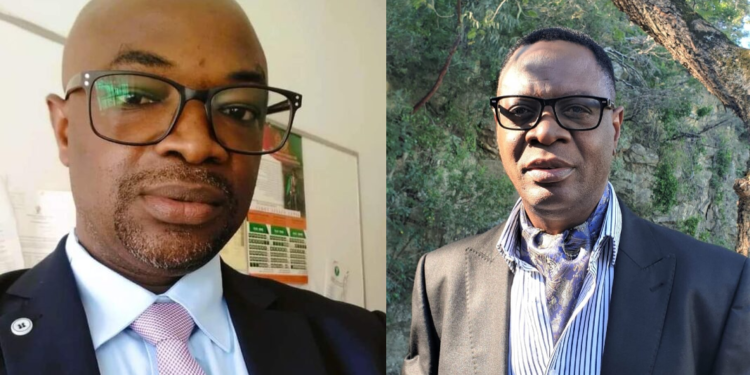KAABA’S BILL 7 DEFENCE FALLS
…Professor Lumina rubbishes it as ‘legal acrobatics’
By Mast Reporter
CONSTITUTIONAL and international human rights law expert Professor Cephas Lumina has poured water on Dr O’Brien Kaaba’s November 7 article defending President Hakainde Hichilema’s “illegal” appointment of the Technical Committee on constitutional amendment calling the argument “an exercise in diversion”.
Prof Lumina said Dr Kaaba misrepresented his arguments and accused him of “fighting ghosts” by invoking the Inquiries Act – an issue he never raised, to deflect from the real question: whether Article 92 empowers the President to set up a body to initiate or steer constitutional reform.
“Legality is the foundation of legitimacy,” he writes in his column on page 5 of this edition of The Mast, warning that constitutional reform detached from the people is “Executive overreach cloaked in consultation”.
In his article published in this newspaper last week, Dr Kaaba disagreed with Prof Lumina’s assertion that the appointment of the Technical Committee was illegal claiming that the professor did not understand the issues he had written about.
But Prof Lumina has fired back, dismissing Dr Kaaba’s claim that he misunderstood constitution-making as “intellectual dishonesty”.
He cites the Constitutional Court’s Munir Zulu decision to reaffirm that constitutional change must remain anchored in the people’s constituent power, not Executive discretion.
“Dr Kaaba claims I made ‘the legally puzzling and self-negating argument that the terms of reference came after the Technical Committee was appointed’. But he does not explain why it is puzzling or self-negating. This misrepresents my argument,” Prof Lumina writes.
“My point was simple: reliable reports show the committee started work before it received its terms of reference, which raises serious legal and ethical questions. Issuing those terms later by press release cannot fix that problem because a press release is not a legal document.”
Prof Lumina says he also questioned how members could be sworn in without a clear, published mandate defining their duties or reporting lines.
“These are legitimate constitutional questions, not the ‘puzzling’ musings Dr Kaaba imagines. Calling them ‘puzzling’ avoids real discussion rather than addressing them,” he writes.
He wonders why Dr Kaaba insisted that the President’s decision to set up the Technical Committee was a mere exercise of executive “strong discretion” likening it to appointing advisers or forming task forces.
“But that analogy collapses once we recall the committee’s mandate: to collect public views and propose constitutional amendments. That is not Executive administration; it is constitutional engineering,” Prof Lumina says.
He writes the Constitution separates powers to prevent this kind of overlap. Executive power under Article 92 is limited by the Constitution, while the power to amend or create the Constitution belongs to the people and Parliament under Article 79.
Prof Lumina says the President could not migrate between these domains by re-branding a constitutional reform process as “consultation”.
“Even if we agreed with Dr Kaaba that Article 92 allows advisory bodies, the committee’s terms of reference, which were announced in a press release and mirror the rejected Bill 7, show a clear attempt to revive a failed amendment through executive action. Good intentions do not cure illegality,” he writes.
Prof Lumina said to grasp the flaw in Dr Kaaba’s reasoning, one needs only revisit the Constitutional Court’s Munir Zulu decision.
He says the court confronted the question whether constitutional reform could proceed without meaningful public participation.
The Technical Committee, created through Executive action and guided by terms of reference replicating Bill 7, sits outside those limits.
It exemplifies what Munir Zulu warned against: Executive repackaging of constitutional reform under the guise of consultation.
“In the closing section of his article, Dr Kaaba urges readers to ‘look beyond legality’ and focus instead on achieving comprehensive reform. That proposition is both illogical and dangerous,” Prof Lumina writes.
He says it is unfortunate that an important discussion has been marred by personal insinuations by Dr Kaaba.
“I take no pleasure in reminding readers that Dr Kaaba’s own scholarship elsewhere affirms the very principles he now abandons: purposive interpretation, constitutional supremacy and popular participation. Yet when those principles constrain an Executive he supports, he suddenly finds comfort in literalism and more Executive latitude,” Prof Lumina writes.

























